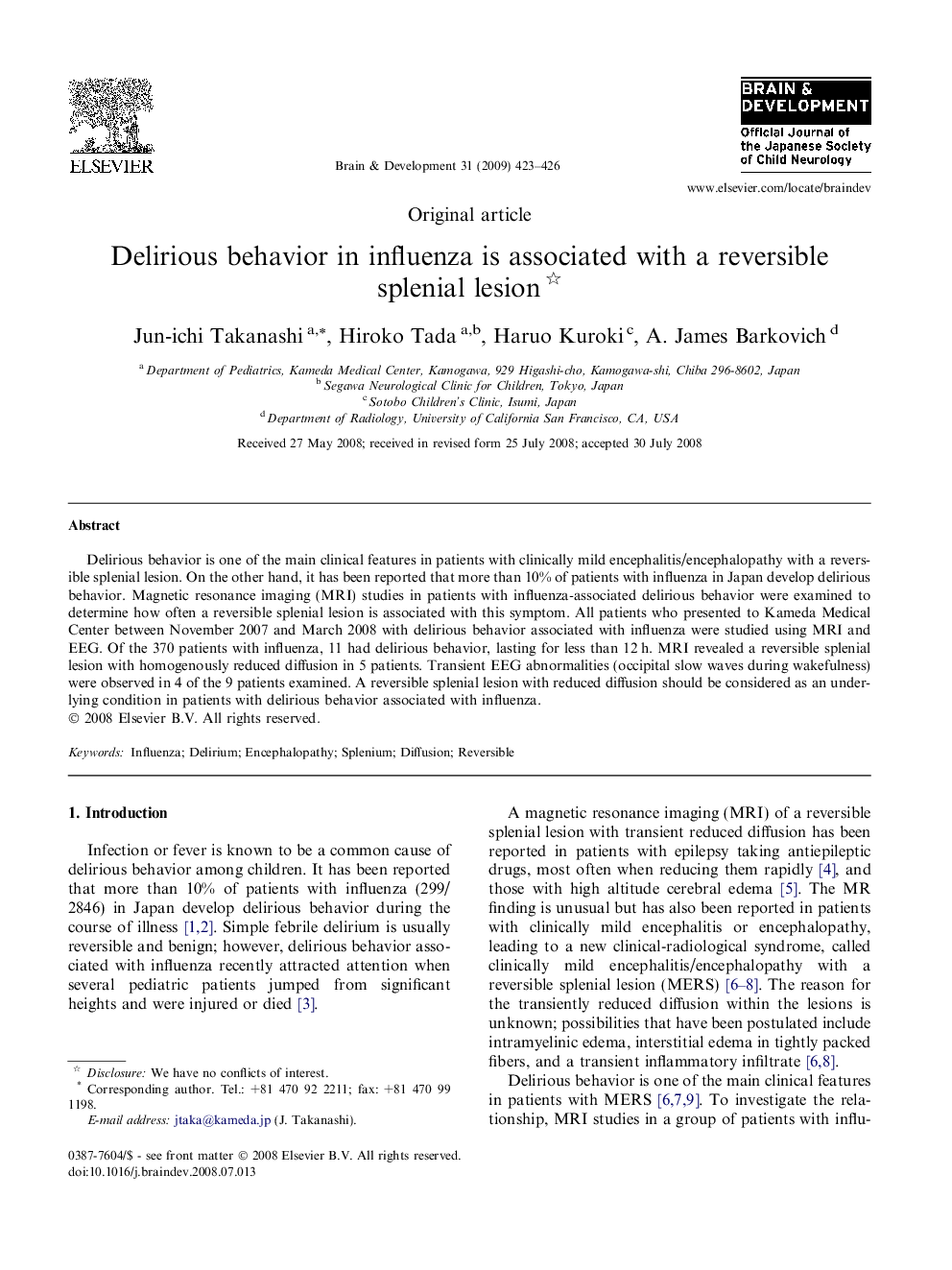| Article ID | Journal | Published Year | Pages | File Type |
|---|---|---|---|---|
| 3037969 | Brain and Development | 2009 | 4 Pages |
Delirious behavior is one of the main clinical features in patients with clinically mild encephalitis/encephalopathy with a reversible splenial lesion. On the other hand, it has been reported that more than 10% of patients with influenza in Japan develop delirious behavior. Magnetic resonance imaging (MRI) studies in patients with influenza-associated delirious behavior were examined to determine how often a reversible splenial lesion is associated with this symptom. All patients who presented to Kameda Medical Center between November 2007 and March 2008 with delirious behavior associated with influenza were studied using MRI and EEG. Of the 370 patients with influenza, 11 had delirious behavior, lasting for less than 12 h. MRI revealed a reversible splenial lesion with homogenously reduced diffusion in 5 patients. Transient EEG abnormalities (occipital slow waves during wakefulness) were observed in 4 of the 9 patients examined. A reversible splenial lesion with reduced diffusion should be considered as an underlying condition in patients with delirious behavior associated with influenza.
